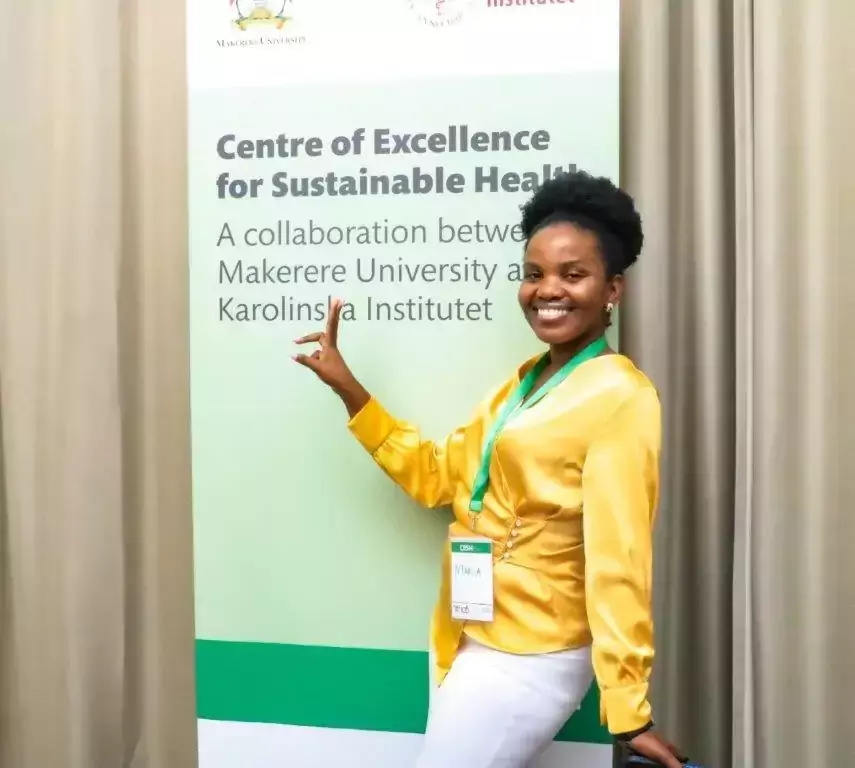About the Centre
The Centre of Excellence for Sustainable Health is developed jointly by Karolinska Institutet in Sweden and Makerere University in Uganda.

The Centre is based on the longstanding cooperation between Makerere University and Karolinska Institutet and our extensive experience and holistic perspective of health.
By working together, we hope to achieve sustainable gains in health and well-being and transform how research and policies are formulated and conducted.
Aim
To develop capacity and mobilise actions to drive the agenda for sustainable health.
Mission
To realise sustainable gains in health and well-being and transform how research and policies are formulated and conducted.
Core engagements
CESH activities can be divided under four core engagements:
1. Capacity development & Education
2. Tools & Resources
3. Networks & Partnerships
4. Research
The collaboration between Karolinska Institutet and Makerere University has been regulated by formal agreements since 2003. The collaboration is comprehensive, ranging from education to research activities. A Centre of Excellence for Sustainable Health is a further strengthening of this partnership.
Collaboration plan
Karolinska Institutet and Makerere University have developed a joint collaboration plan, which describes the aim, mission, vision and expected output and outcomes.
Annual report 2023 (pdf)
Strategic plan
The initiative for developing the centre is based on Makerere University’s Strategic Plan 2020-2030 and Karolinska Institutet’s Strategy 2030
The Centre defines sustainable health as:
"A multisectoral area for study, research and practice towards improving health and wellbeing for all, while staying within planetary boundaries", research article Sustainable health - a call to action in BMC Global and Public Health (2023).
This view of sustainable health builds on the definition of sustainable development given in the Brundtland commission and the report “Our Common Future” 1987.
Working Group
The Centre is run by a team of representatives from both universities. The team, led by professor Tobias Alfvén and professor Rhoda Wanyenze, is responsible for the operational activities of the Centre.
Steering Committee
The steering committee provides strategic oversight and guidance of the Centre’s activities. Both universities are represented in the steering committee. From August 2023 the committee is chaired by professor Martin Bergö. Deputy chair is professor Damalie Nakanjako.
Karolinska Institutet and Makerere University have within the Centre established partnerships with several academic institutions in Sub-Saharan Africa as well as with Tinkr, a consultancy company specialising in social innovation.
How international and multisectoral partnerships can help achieve the 2030 Agenda
